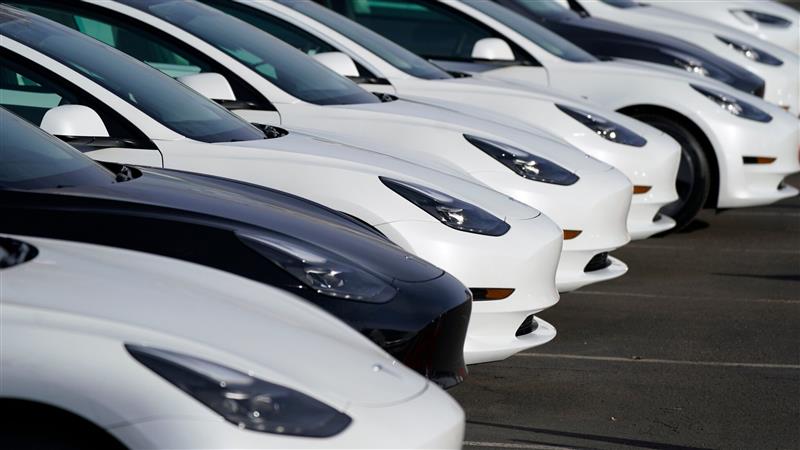
The Israeli Defense Forces (IDF) launched an operation to seize and enforce Chinese EV ban on its military personnel, removing them from its military bases, as a security measure due to intelligence fears of the cars’ advanced connectivity features, according to Israeli military sources.
So far, the policy led to the impoundment of around 700 Chinese EVs, primarily from leading manufacturers, such as BYD. Security officials now contend the integrated technology in these cars, such as built-in cameras, microphones, GPS, and constant cellular data links, could turn a commonplace sedan into a mobile listening post that can track troops and record sensitive conversations.
Israel’s decision to pull back hundreds of Chinese military vehicles is a sharp pivot away from what was once seen as a cheaper procurement option.
The maturity of China’s EV sector has been so rapid that sensor cars are increasingly viewed as potential geopolitical tools as much as consumer products. The preemptive Chinese EV ban and seizure by the IDF shows how everyday “smart” consumer tech, especially from geopolitical rivals, is now viewed as an insidious intelligence threat.
Israeli experts explain that the problem starts with Chinese EV espionage. With modern cars starting to look more like rolling smartphones, with their cameras, microphones, and location systems connected to remote cloud servers.
For the IDF, the supposed EV cybersecurity threat is high-risk for military planners.
It’s Not About EV Intelligence. It’s About Espionage.
Analysts warn of systematic EV data exfiltration, where software silently routes information back to overseas servers built into the automakers’ global data infrastructures.
Others point to the huge EV data collection capabilities made possible by China’s world-leading sensor supply chain. It is a strength that turned carmakers into intelligence-rich hardware makers.
Israel’s decision mirrors a much wider Chinese EV government ban trend happening across the US and some European countries, where lawmakers argue that connected vehicles have become espionage assets and not just transport tools.
European security researchers also flagged the EV surveillance threat, noting that fleets of imported smart cars could map military bases, government compounds, or infrastructure, without ever raising suspicion. This has fueled calls for new connected car security standards, with governments trying to define the limits of data each vehicle can gather, store, and transmit inside their borders.
The regulators have, in fact, increasingly treated the vehicle as part of cybersecurity in automotive IoT. Recognizing that cars, like smart home devices, have now become integrated connections in a large digital ecosystem affected by global supply chains.
As companies analyze software flows, they’re finding extensive EV data sharing mechanisms, many of which are required by Chinese regulations mandating data transfer to domestic servers. Israel’s military cybersecurity teams say that to identify the risks, a broader look at smart car cybersecurity is needed.
Since vehicles combine cameras, sensors, LTE/5G connectivity, cloud services, and AI tools, all built by foreign vendors. Experts also warn that cabin microphones increase the risk of EV eavesdropping, where sensitive discussions could be recorded even on regular trips.
The IDF’s decision of Chinese EV recalls over security concerns can override cost efficiency in government fleets now.
On a political level, even countries with strong surveillance defenses are finding that China’s manufacturing leap, particularly in sensors, batteries, and onboard intelligence is separating consumer mobility from geopolitical vulnerability.
More countries are issuing their own Chinese EV ban in government fleets, proving the matter is no longer restricted car manufacturing. It’s about how deeply Chinese manufacturing has soaked global technology and how that requires every state – Israel included – to think again about its exposure.
Internal audits and tech reviews in commercial markets are also playing their part in the scenarios, as private companies grapple with how to calculate risks embedded in EVs that were never designed with military-grade safeguards.
As a result, policymakers are now weighing whether consumer tech should also follow foreign policy logic, particularly when advanced manufacturing can transform everyday products into potential sensors.
Ultimately, the IDF’s attitude demonstrates how a Chinese EV ban is becoming, a proxy for a much larger geopolitical question. When industrial advancement becomes indistinguishable from intelligence capability, how do nations protect themselves?
As governments continue to explore restrictions, the global auto market could soon reflect a world where the supply chains themselves are the new strategic battleground.
Inside Telecom provides you with an extensive list of content covering all aspects of the tech industry. Keep an eye on our Cybersecurity sections to stay informed and up-to-date with our daily articles.